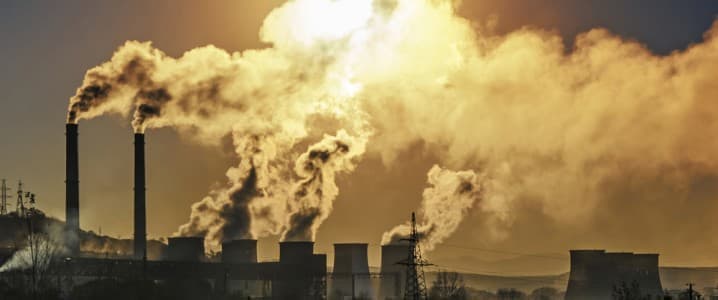Copyright OilPrice

The Global Methane Pledge was launched at the COP26 climate summit to accelerate the reduction of carbon emissions worldwide. However, since joining the pledge, many countries have failed to cut their methane emissions at the rate needed to meet global warming reduction targets. While the focus of climate change is often centred around carbon emissions, the fact that methane heats the planet up to 80 times more than carbon dioxide over two decades is less widely discussed. Methane has contributed around 30 percent of the increase in global temperatures since the Industrial Revolution. The energy sector accounts for over 35 percent of the methane emissions from human activity, meaning that a transition from fossil fuels to green alternatives could help to significantly cut emissions. The Global Methane Pledge was introduced in 2021, led by the United States and European Union and signed by 111 countries, which, together, contribute around 45 percent of global human-caused methane emissions. The pledge states the aim of reducing methane emissions by at least 30% below 2020 levels by 2030. For several countries that joined the pledge, this was their first policy commitment to reduce methane emissions. While the pledge is non-binding, the U.S. and EU requested that all participants develop or update a national methane reduction action plan by COP27 in 2022. However, the pledge does not state any specific actions or steps for member states to take. Some of the countries that emit the highest levels of methane each year, such as China, India, and Russia, have not yet joined the pledge. However, China did commit to developing a “comprehensive and ambitious National Action Plan on methane, aiming to achieve a significant effect on methane emissions control and reductions in the 2020s.” Participant commitments to methane reduction vary significantly. For example, Canada announced plans to reduce methane emissions from the oil and gas sector by at least 75 percent from 2012 levels by the end of the decade. Meanwhile, some countries, such as Iran, have yet to establish any methane reduction strategies to date. The United Nations also developed a scheme for oil and gas companies to measure and report their methane emissions, with 154 companies currently enrolled, representing around 42 percent of global oil and gas production. In 2025, the firms reported 2.5 million tonnes of methane emissions, which was higher than the previous year. However, the UN noted that around four-fifths of companies fail to report their emissions accurately. Despite over a hundred countries joining the pledge, as well as the launch of the company's emissions reporting scheme, the world is falling short on cutting global methane emissions. A recent report by the UN showed that methane emissions are not falling fast enough to meet the 2010 reduction target. Satellite imagery from one UN programme revealed that there are over 14,000 methane leaks worldwide. The UN said that nearly 90 percent of satellite-detected methane leaks being reported to governments and fossil fuel companies are not being addressed. The International Methane Emissions Observatory achieved a 12 percent response rate from 3,500 alerts from leaks detected. In addition, most methane leaks are too small to be detected by satellites, suggesting that global emissions are far higher than satellites can show. Related: New Sodium-Ion Battery Breakthrough Doubles Charge and Desalinates Water Inger Andersen, the executive director of the UN Environment Programme, which oversees the observatory's Methane Alert and Response System, said, “Actions remain too slow… We are talking about tightening the screws in some cases,” in reference to methane leaks from oil and gas venting and flaring. Andersen added, “We can't ignore these rather easy wins.” Under President Trump, the U.S. has pulled back on methane emissions targets, despite its leading role in the methane pledge. The Trump administration has proposed ending pollution reporting requirements and has halted plans to begin taxing methane emissions. Recently, investors representing over $5.3 trillion of assets encouraged the EU not to weaken its methane emissions law, owing to concerns that the bloc may relax the rules to support higher levels of LNG imports from the United States, aimed at easing trade tensions. Despite the failure to reduce global methane emissions at an accelerated rate, the UN report did highlight that many energy companies were improving the quality of their methane reporting. The report stressed the importance of accurate reporting, “Reliable measurement-based data is required not only to guide effective and efficient mitigation, but also to track changes in emissions over time and assess progress toward climate goals.” The UN’s report comes just weeks ahead of the COP30 climate summit in Brazil and emphasises the need for greater discussion around methane emission reduction efforts. COP30 could provide the necessary platform to establish clear international goals for methane emissions cuts and encourage countries and companies to improve monitoring and reporting mechanisms to help meet global 2030 targets. By Felicity Bradstock for Oilprice.com More Top Reads From Oilprice.com Copper Soars to Record High on Supply Crunch and Brighter Outlook India Plans $11.3 Billion Bailout for State Power Firms Japan Tells Trump Tokyo Will Struggle to Ban Russian LNG Imports



